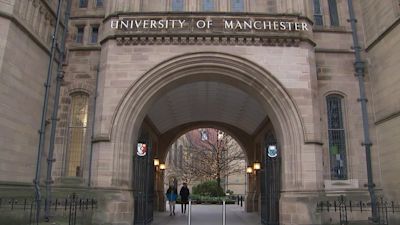University of Manchester students start petition to dissolve pro-life society

A row has erupted at the University of Manchester after a petition was started calling for a pro-life society to be dissolved.
The petition - which has been signed by more than 15,000 people - says the views of the group, reportedly set up by an "all-male" committee, is “inherently dangerous” for women.
It claims the society, whose aim is to "create a Pro-Life culture on campus and support the dignity of every human life from conception" instead adds “to an already prevalent stigma surrounding abortion, a legal right in our country".
A number of comments from concerned students posted on the petition site argues “for the safety of women on campus they should be banned”.
While another said: Another said: "Women’s rights to choice and access to the right healthcare when needed should be protected.
"It should be for women to decide. Society, especially educational establishments, should be doing all it can to provide safe environments for women not increasing the risks and danger they already face today which this society will do."
The group has since said it is "not an anti-abortion society but a pro-life society" and are therefore tackling other issues including "assisted suicide, the death penalty, deaths occurring through poverty and poor living standards, structural issues in critical infrastructure such as the NHS, and climate change".
In response to the criticism, the Students Union said it was unable to dissolve the society, citing the 1994 Education Act, 2010 Equality Act and 1986 Education Act.
It added: "From a legal standpoint, it’s not possible to stop a society from affiliating for their legal views that are contrary to the views of other students.
"That means, despite concerns over student safety, the students’ union can’t block a society from forming because of their beliefs.
"The new freedom of speech legislation was passed in 2023 and will be fully implemented by September of this year.
"We know many aspects of this area of law are potentially contradictory with other legislation, such as equalities legislation, and at the very least it creates lots of tensions which are untested in law.
"The students’ union is not best placed to carry out legal challenge in new ground."